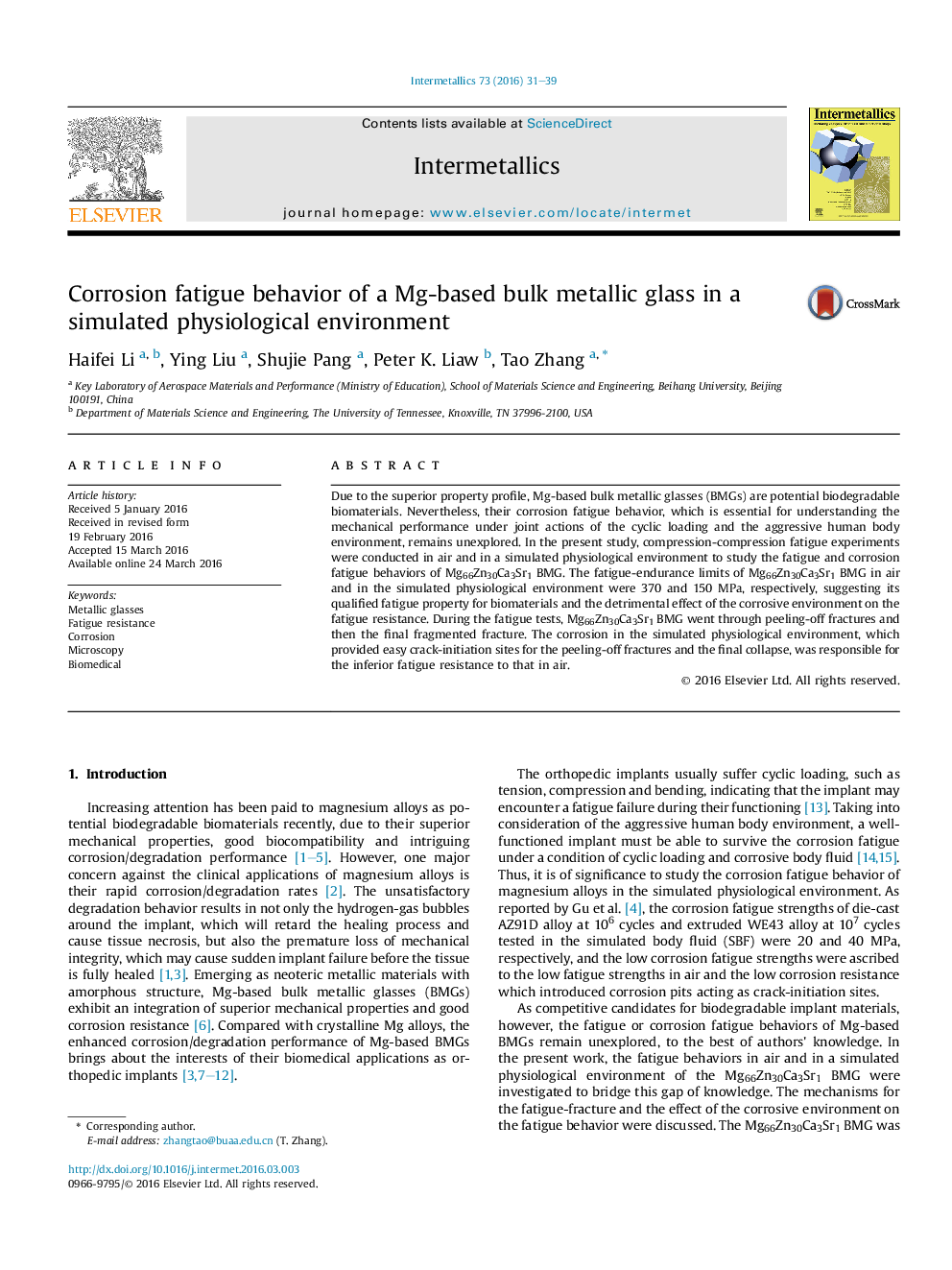| Article ID | Journal | Published Year | Pages | File Type |
|---|---|---|---|---|
| 1599633 | Intermetallics | 2016 | 9 Pages |
Abstract
Due to the superior property profile, Mg-based bulk metallic glasses (BMGs) are potential biodegradable biomaterials. Nevertheless, their corrosion fatigue behavior, which is essential for understanding the mechanical performance under joint actions of the cyclic loading and the aggressive human body environment, remains unexplored. In the present study, compression-compression fatigue experiments were conducted in air and in a simulated physiological environment to study the fatigue and corrosion fatigue behaviors of Mg66Zn30Ca3Sr1 BMG. The fatigue-endurance limits of Mg66Zn30Ca3Sr1 BMG in air and in the simulated physiological environment were 370 and 150Â MPa, respectively, suggesting its qualified fatigue property for biomaterials and the detrimental effect of the corrosive environment on the fatigue resistance. During the fatigue tests, Mg66Zn30Ca3Sr1 BMG went through peeling-off fractures and then the final fragmented fracture. The corrosion in the simulated physiological environment, which provided easy crack-initiation sites for the peeling-off fractures and the final collapse, was responsible for the inferior fatigue resistance to that in air.
Related Topics
Physical Sciences and Engineering
Materials Science
Metals and Alloys
Authors
Haifei Li, Ying Liu, Shujie Pang, Peter K. Liaw, Tao Zhang,
